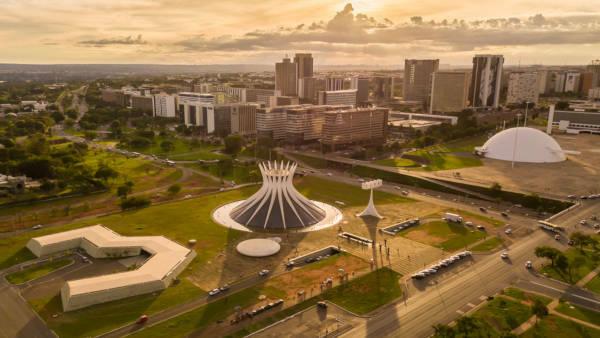Although the Brazilian economy has become more dynamic, the agribusiness it is still very important for the country. To give you an idea, it is estimated* that around 21% of all Brazilian GDP in 2014, around 5.52 trillion, is from this activity, which is in full expansion, even during the crisis that the country is currently experiencing. In the last forty years, the cultivated area has grown* by about 53%. Of the 851 million hectares that Brazil has, around 329.9 million are occupied by rural properties, and productivity rose from 1,258 kg per hectare to 3,484 kg.
These agribusiness growth numbers are very encouraging from a purely economic perspective. However, from an environmental perspective, this advance raises concern due to the various impacts environmental caused by overexploitation of the environment. In the search for development and immediate profit, many companies disregard environmental legislation and explore the environment environment without caring about the consequences of this exploration, causing several environmental problems in the agrarian space. Among these problems, the following stand out:
O Logging is the first consequence of agricultural activity in Brazil. Since the beginning of colonization, a large part of the areas of native vegetation on the coast, South and Midwest regions of Brazil have been deforested to make room for pasture and cultivation areas. Due to this growing deforestation, the Cerrado and the Atlantic Forest have already been introduced in the world list of biomes with great diversity that are threatened with extinction (so-called Hotspots), with the prediction of the disappearance of the Pantanal and the Amazon in the coming years if the same deforestation rates are maintained in these biomes.
loss of biodiversity: With deforestation, many species of fauna and flora are becoming extinct, as they cannot guarantee their survival in the small reserves that remain in their ecosystem.
-
soil degradation: The extensive development of agriculture has caused soil degradation, which ends up becoming unproductive when over time, generating not only environmental problems, but also economic problems for those who degraded it. Inadequate cultivation techniques, the intensive use of machines and the non-rotation of crops produced in the soil can cause the nutrient depletion, compaction, erosion and acceleration of desertification. In livestock, continuous trampling of cattle can compact the soil and favor the development of erosive processes.
Do not stop now... There's more after the advertising ;)
Depletion of springs: in every productive process of activities related to the agrarian space, a large amount of water is used. To get an idea, in the production of corn, 1750 liters are used per kilo produced. As for the production of meat in Brazil, an average of 4325 liters per kilo of chicken, 15,400 liters per kilo of beef and 10,400 liters per kilo of pork meat are used. The progressive withdrawal of water from springs and groundwater reservoirs by these activities can lead to a decrease in volume or even the depletion of rivers and groundwater.
Contamination of soil, air and water. The indiscriminate use of pesticides, fertilizers and antibiotics has caused air, soil and water contamination in rural Brazil. The pesticide, when released on the plantations or in the pasture, can spread through the air, infiltrate the soil, reach the water table or be carried by rainwater to the springs.
-
Waste generation: the amount of waste generated during agricultural production in Brazil is increasing. This fact can cause problems in the disposal of these materials and, as a result, environmental contamination, already that many of the waste generated, such as pesticide containers and animal feces, must be disposed of Special.
In recent years, the incentive for more aware agrarian practices and for there to be a sustainable developmentof agribusiness in Brazil. Sustainability not only favors the environment, but also increases the companies' productivity and reduces future expenses. However, disrespect for environmental laws is still very common, since, as inspection is still inefficient, some type of environmental crime is rarely punished in the country and, when this happens, in most cases, the punishments are relatively mild, the required remedial measures are not put in place, or they fail to recover the area. degraded.
GRADES
*According to the Confederation of Agriculture and Livestock of Brazil, agribusiness represents 21% of the Brazilian GDP and has expanded in the country.
By Thamires Olimpia
Graduated in Geography
Would you like to reference this text in a school or academic work? Look:
SILVA, Thamires Olimpia. "Environmental impacts caused by agribusiness in Brazil"; Brazil School. Available in: https://brasilescola.uol.com.br/brasil/impactos-ambientais-causados-pelo-agronegocio-no-brasil.htm. Accessed on June 27, 2021.


